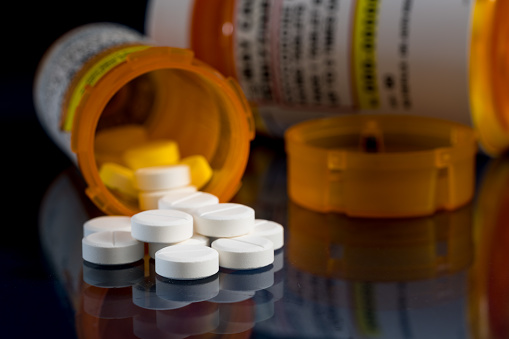
With the pandemic raging, we may not boast the mobility and flexibility we once had in procuring our medications. From social distancing to shelter-at-home restrictions, it is fast becoming advisable to avoid the pharmacy as much as possible physically.
Pandemic or not, your health condition is not taking a holiday off. Definitely, you still need your over-the-counter medication and prescription.
How then do you still maintain a consistent supply of these vital commodities in the face of these pandemic-inspired constraints?
In this guide, we would touch on some creative pay to procure your medication in a COVID-stressed society.
Explore Free Delivery Options
Given the disruptions triggered by the pandemic, many big box and retail pharmacies are now offering free delivery. This is an excellent means of procuring your drugs without an in-person presence at the pharmacy.
You could reach out to your pharmacy and inquire about the delivery options they have. A bulk of such orders is now being fulfilled via mail. Therefore, you can be expecting your medication in about 48 hours after you place your order.
Such orders can be placed be via your debit or card, and the pharmacy delivers the medication to the designated address you provided on your file.
Getting months' supply via mail order pharmacy
Another alternative is procuring months' supply of your medication via mail-order pharmacies. These are unusual times, and many insurance companies are proportionately adapting by allowing you to get more than a month's supply of your medication.
These special exceptions allow you to procure up to 3 months' supply of your medication, mailed straight to you by your pharmacy.
There is also the economic advantage to this approach, as you get to save a few dollars (which are ever so needed these days).
For example, instead of paying $10 per month, amounting to $30 for three months, you could cumulatively pay $20 for 3 months' supply of your prescription. Interesting, isn't it?
Opt for refills earlier
Consequent to the pandemic, there has been alarming volatility in the supply chain of many drugs. It goes without saying that many pharmacies have had their supplies stretched.
To avoid situations where you wouldn't be able to get a refill on time when it is direly needed, it is recommended to go for earlier refills these days.
So instead of your traditional one-month refill, you can order a refill much earlier before the next one is due, preventing you from running out of stock of your vital prescription.
Insurance companies and state boards of pharmacies have been pretty impressive in adapting the legislation to prevent patients' medication from running dry. Hats off to these guys!
Reaching out to the manufacturer
Sounds like a big ask, right? With the economic strangulation that escorted the pandemic (consequent of many businesses shutting down), it is only normal to be financially constrained.
With these financial handicaps, it may be challenging to procuring expensive medication. If you are in this situation and are taking brand-name drugs, it doesn't hurt to reach out to the manufacturer.
Many of these manufacturers have formulated special patient assistance programs to subsidize their drugs for patients on a shoestring.
Some of these manufacturers could deliver your prescription directly to you (or a physician in your vicinity) for free or at subsidized costs.
Leverage Medicare Extra Help
Another way to get help with procuring your prescription is by tapping into Medicare's Extra Help package. This plan could be worth $5,000 annually.
Of course, there are eligibility criteria to be fulfilled before you enjoy this program. Generally, you must be resident in the 50 States of the United States or staying in the District of California.
Proof of being financially constrained is mandatory too. Also, you must be receiving Medicare before you can tap into the Extra Help package. So what precisely are the financial constraints criteria?
Your annual income must be below $19,380 as a single or $26,100 as a couple before you can apply for Exta Help. Take note that the income margins are higher in Hawaii and Alaska. You can readily apply for Medicare's Extra Help online at NCOA's BenefitsCheckUp or via Social Security.
Should you choose to use Social Security, it is worth reckoning that Social Security's field offices are closed due to the pandemic.
Therefore, you may not get a letter confirming your successful admission into the Extra Help program soon enough after applying.
Within this period of waiting for approval to enter the Extra Help program, you can be procuring your prescription drugs via the LI NET program at a significantly lesser cost.
Take note that if you are already enrolled in a Medicare Savings Program (MSP), Supplemental Security Income (SSI), or Medicaid, you enjoy automatic qualification for Extra Help. This qualification holds irrespective of you fulfilling the eligibility criteria for Extra Help.
In the event where Medicare's Extra Help is out of your reach, you can resort to other programs like the Patient Assistance Programs (PAPs). PAPs give you discounts for brand-name medications (or even for free) when you procure them directly from the manufacturer.
Recourse to discount prescription drug cards
In a COVID era where every cent matters, discount prescription drug cards can help you save a bunch of dollars when buying your prescription.
As characteristic of Prescription Assistance Plans, discount prescription drug cards have eligibility requirements.
Generally, you must fulfill specific income and age criteria. Most of these cards – at least the genuine ones – come either at a meager or even zero cost.
Prescription drug cards are offered by the government and also by private businesses. For example, you can get store affinity cards, where a specific store offers custom drug discounts to a fraction of its customer base who meet designated eligibility requirements. Kmart, and Sam's Club are some of the biggest pharmacies that offer such cards.
Aside from these, some drug manufacturers offer these discount cards to patients whose health insurance doesn't give them any prescription plan cover. Pfizer and Merck are reputed for offering such discount cards.
However, it is worth pointing out that not all discount prescription cards are beneficial. Some don't give you a good deal.
Some scandalous discount cards only purport to give you drug discounts but milk you of more money via costly purchase prices and subscriptions.
Therefore when procuring such discount cards, due diligence is enormously helpful. If the discount prescription card is not free, what is the purchase price? What fees would be paying and at what regularity?
Also, will your pharmacy recognize such a discount card, or will be you be required to migrate to designated pharmacies to use the card?
These are details you ought to know before opting for any prescription card. Extra caution doesn't hurt, does it?
Getting help from Nonprofits
In these times, the humanitarian assistance of nonprofits can be lifesaving. You can maximize local nonprofits' offerings like charities and even your religious institutions for financial aid in procuring your drugs.
In conclusion, with all these creative ways to pay for your medication, it helps you if you build a solid relationship with your pharmacist.
More than making your prescriptions more affordable, such a robust relationship with your pharmacist comes in handy when you are getting medications from multiple health providers. In such a scenario, you need the pharmacist to unify all the prescriptions into one integrated therapy that works well for you.








